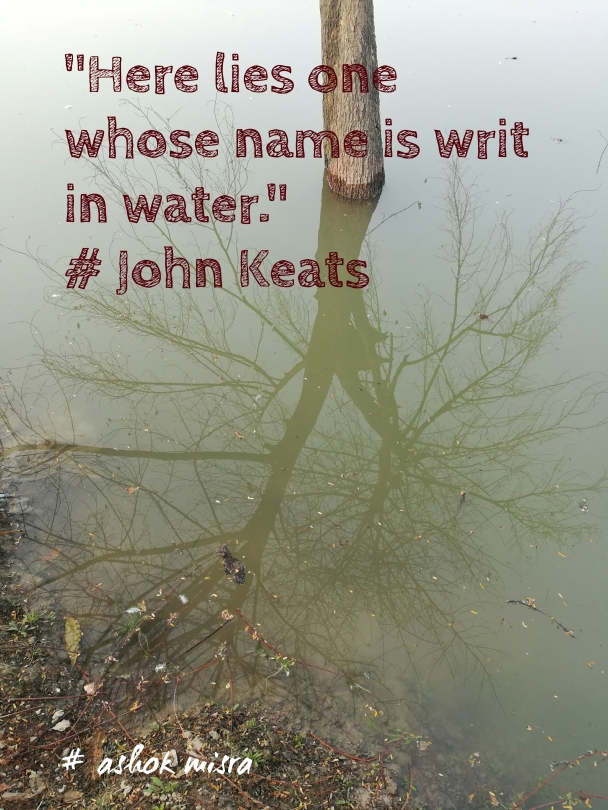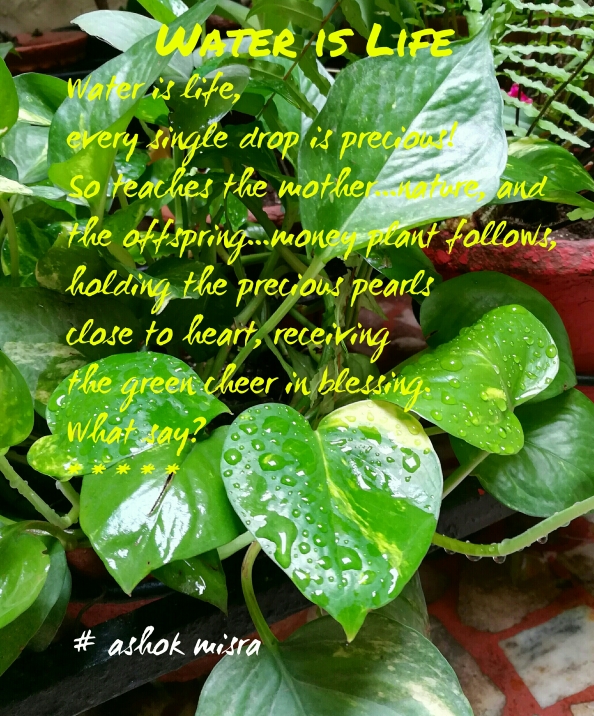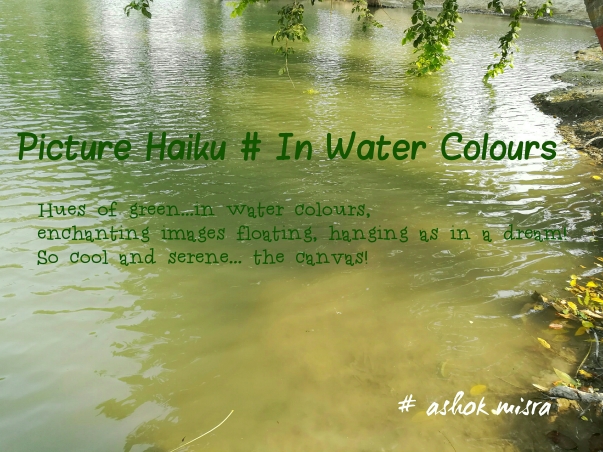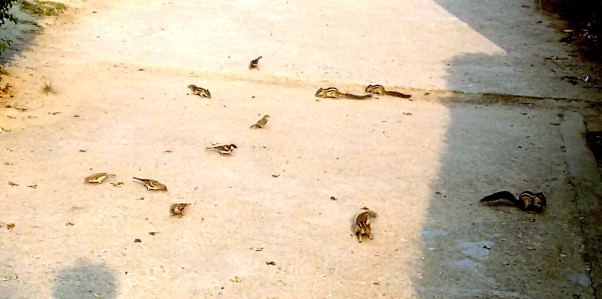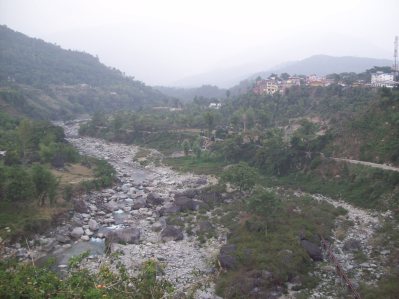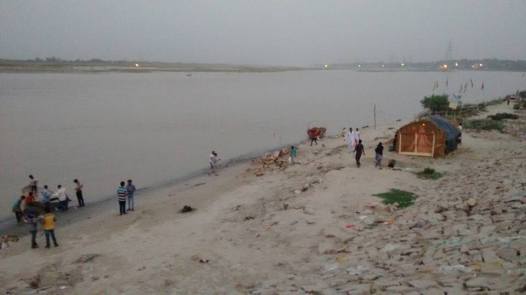My Reflections: On Basic Elements of Life
As we grow up, our mind too grows, in maturity. A new kind of curiosity gets into us and we start asking basic questions about – ourselves, life, cosmos, divinity, and so on. Faced with life’s ups and downs, joys and sorrows, gains and losses etc., we try to find crucial answers.
We crave for love, happiness and …peace. This quest has become more pronounced now-a-days. The media, consequently, is flooded with spiritual philosophical contents coming from sages and spiritual gurus, and motivational leaders.
Through our quest, we realize that life happens to be one of the foremost mystic topics attracting curiosity. ‘What is life and its origin?’ ‘Who creates it and how?’ ‘How it ends and…what happens after it passes away?’ We start asking ourselves and go pondering over. To begin with, life and its origin come first and foremost.
At the outset, we find that life is composed of many constituents/ aspects. They are – body, mind, emotions and soul. They represent the – physical, mental, emotional and spiritual aspects. But that is not all. Our craving does not stop there but grows more intense. We start looking around for deeper gyan in the true sense.
Books usually come up as a good source for learners in this vast field. Through them, they can at least pick up the basic vocabulary to decipher the mystic script. In this era of Google and Wikipedia as you know, there is no dearth of basic contents online on this crucial topic. Almost every spiritual guru and leader is online in LIVE or recorded form.
Basic Elements or Panchamahabhootas: Life, as the theory goes, is composed of five basic elements. According to Hindu philosophy, the entire cosmos, that is, srishti, is made up of them. They are – Earth (Prithvi), Water (Jal), Fire (Agni) , Space (Akash) and Air (Vayu). Ayurveda refers to these Five Elements as Panchabhootas, and calls them – Khshiti, jal, pawak, gagan and sameera.
Each of these elements has its own character and characteristics, which it lends to create a life. Their energies flow in a living being and perform various roles. Together they combine to form life reflecting their respective characteristics. If they act in harmony, one is able to live a perfect life.
Gross and Subtle Elements: Out of the five elements, three, i.e., earth, air and water are gross and are responsible for creation of the gross body. The rest two – fire and sky are subtle. Fire is energy which runs the thought and emotion system. And both are located in the sky, which is vast, open and untouched.
Material body is created by earth, air and water. Fire is the energy that fuels the mental or thought producing system. That is located in the sky. According to scripures, God is in the form of the sky. Being with Him implies that we become sky-like. Sky is infinite. Nothing touches it. Nor does it contradict with any person or thing.
If our mind becomes infinite, untouched by petty worldly things, benign and empathizing with everyone, we can experience closeness with life and God. Open-mindeness has a direct impact on the body. Despite being based in the self, it can remain healthy being free from contradictions gives a sense of satisfaction and contentment to a person.
Basic Traits of the Elements: Let us try to have some basic idea about the traits various elements carry and which we acquire from –
| Element/Bhoota |
Trait |
| Earth/Prithvi/Khshiti |
Stability, support |
| Water/Jal |
Joy, well being |
| Fire/Agni/Pawak |
Wisdom, power |
| Sky/Aakaash/Gagan |
Oneness, knowledge, intuition, dignity, trust and creativity |
| Air/Vaayu/Sameera |
Compassion |
Importance of the Elements: As mentioned earlier, each element plays some important, rather crucial role in creating and running the cosmos and all its beings. Let us have a quick look at what each does:
Sky is the origin of light, heat, gravitation etc. It produces waves/rays which affect the life on earth. It also gives the man qualities like – openness, generosity, enthusiasm and hope.
Air is the source of oxygen we use for breathing. Thus our breathing system is entirely supported and fed by the air. Without that life on earth cannot even be imagined.
Fire is the provider of light and heat, so cruicial for existence. Sun and Mars are regarded as the sources of fire. Fire from the sun is the force behind the system of the life cycle on the earth.
Water: Life on earth cannot exist without water. It helps in blood circulation as well as digestive and cleansing systems of the body. So the entire plant as well as animal life is wholly dependent on water.
Earth: The entire life in the universe is basically supported, nourished and regulated by the earth.
However, the material body composed of the five elements is inanimate or lifeless. To bring it to life, it requires the life force – the soul, which complements it. The soul activates the body and makes it start on the journey called the life.
The Five Elements and Yoga
The entire creation, inanimate as well as animate, can exist only when all the five elements combine in appropriate balance and function in harmony. Among the living beings, that is, plants and animals, any disturbance has a direct impact on life. It could produce setbacks like illness and other problems. Life becomes full of hardships and misery.
To live a smooth and successful life, we need to have mastery and control over ourselves. That comes by adequate understanding of our basic elements and having them in harmony. Yoga is one option. It trains us to acquire mastery over ourselves. That is achieved through yogic practices or sadhana of individual elements. For instance, activation of chakras. The process is known as Bhoota Shuddhi. There are specialized temples for sadhana of individual elements in India.
In Hindu system, it is customary to regard, offer prayers and worship to all those who give them something, as Gods. Since the five elements happen to be the very genesis of life, they too are their Gods. That is why, before any auspicious ceremony (puja) starts, they invoke each individual element, offer prayers and worship to have their blessings. So that, there may be peace, harmony, love and happiness all around. Amen!

